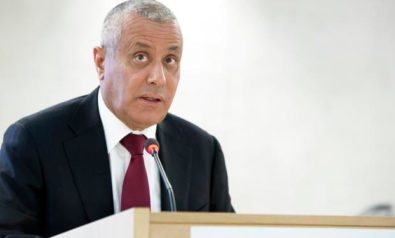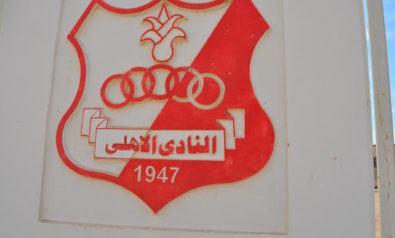Rivalries between Libya’s political and military actors threaten a new civil war.
The ongoing political dispute in Libya between a secularist and liberal political alliance and Islamist groups is a significant contributing factor to violence afflicting the country. Militia groups that are allied with a retired Libyan general, Khalifa Haftar, and his “Libyan National Army” have seized upon their disagreements with Islamist parties in order to conduct armed operations against their political enemies in Tripoli and Benghazi. Forces cooperating with Gen. Haftar have attacked the Libyan parliament, the General National Congress (GNC), and are trying to force the GNC to dissolve itself and transfer its powers to a transitional assembly that would rewrite the country’s constitution.
Further complicating the conflict is Haftar’s statement that he will not order his forces to stop their offensive until they “eradicate terrorism and extremist groups,” by which he means his political enemies. Haftar’s political and military opponents who support the GNC argue that he is attempting a “coup” against Libya’s legitimate government.
Long-running militia violence in and around Tripoli in the aftermath of Muammar Qadhafi’s rule is another complicating factor that has allowed local militia rivalries to be inflamed by political disputes. These events continue to demonstrate the strong impact of sub-state militias in Libya’s sociopolitical system, which could lead the country into another civil war.
Nicholas A. Heras speaks to Andrew Engel, an Africa analyst who received a grant with the Washington Institute for Near East Policy to research current events in Libya. Engel visited the country after its official liberation and has published extensively on Libya since its uprising and successful revolution in 2011.
Nicholas A. Heras: To what extent is Libya’s ongoing conflict a war over control of oil reserves?
Andrew Engel: The current crisis is not a direct result of the almost year-long conflict between federalists seeking greater autonomy, led by Ibrahim al-Jathran who has blockaded oil export terminals, and the central government. Instead, recent violence is the result of an escalating competition for legitimacy in post-revolution Libya. The conflict can be characterized as Islamist against non-Islamist forces. But it can also be characterized as revolutionary against “reactionary” forces that include former members of the regime and armed forces (defectors who fought the regime, those who remained on the fence, and those who supported the regime).
The first sign of this fissure among anti-Qadhafi forces was the war-time assassination of Gen. Abdul Fatah Younes in August 2011, who defected to the revolutionaries’ side and was likely killed by Islamist fighters. Post-war, Islamists and revolutionaries forced the passage in the General National Congress (GNC) of the Political Isolation Law in May 2013, which excluded from political life all who had connections with the former regime for a period of ten years. The escalating campaign of assassinations and attacks against retired and current members of security forces also helped create this backlash against Islamist and revolutionary forces.
Haftar is controversial. Many support his goals of eradicating extremism and Islamist militias, but stop short of supporting the man himself. As much as Haftar seeks to emulate the new Egyptian president, he has not come close to the adulation Sisi earned after ousting Mohammed Morsi.
Again, this is about legitimacy. Operation Karama under Khalifa Haftar’s leadership claims the GNC is illegitimate for the extension of its own mandate in February 2014; its inability to rebuild the armed forces, while legitimizing and bankrolling Islamist militias; and unwillingness to combat extremists in Cyrenaica province. In contrast, those in opposition to Karama see only naked aggression against the country’s primary representative body and “true rebels,” who are the proper heirs of the revolution.
Heras: How much of the current fighting is a result of antipathy toward Islamist militias, such as Ansar al-Sharia, that have strong influence on the country’s Cyrenaica region and the Muslim Brotherhood-inspired Justice and Construction Party?
Engel: Myriad forces came into alignment to bring Libya to the brink. In Cyrenaica, Operation Karama consists of former Gen. Haftar’s National Libyan Army — predominantly official armed forces units that resent the preferential treatment given to Islamist militias by the GNC — and Wanes Boukhmade’s Sa’iqa Special Forces in Cyrenaica, which deployed to Benghazi in summer 2013. Both are aligned against Islamist militias such as the February 17 Brigade and the more notorious Ansar al-Sharia Brigade, whose Benghazi and Derna forces the US has designated a foreign terrorist organization.
The Sa’iqa Special Forces are largely supported in Benghazi, but loathed by Islamists for their role in suppressing Islamist fighters in Cyrenaica during the 1990s. Jathran’s forces, generally antipathetic to Islamist militias, support Operation Karama. However, some view Jathran with skepticism and see in him opportunism more than true ideological commitment. For example, Jathran, who had close relations with the former Islamist fighter in Afghanistan and deputy defense minister, Saddiq al-Gheithi, had opposed former Prime Minister Ali Zeidan’s government — remnants of which have sided with Operation Karama like the new prime minister, Abdullah al-Thinni.
In Tripolitania, the Zintani-associated al-Qaaqaa, al-Sawaiq and al-Madani Brigades, which operated under the Ministry of Defense, moved against the Islamist-dominated GNC, Islamist militias and Islamist-leaning forces operating under the Ministry of Interior and chief of staff of the Armed Forces. The Zintanis have long-sided with the National Forces Alliance and Zeidan; the brother of Othman Mligta, commander of the Qaaqaa Brigade, led the NFA’s steering committee. Like the Sa’iqa Special Forces in Cyrenaica, many enlisted with the Zintani brigades had previously served under the Qadhafi regime, most notoriously with the Khamis Brigade. It is important to note that while these brigades sided with Haftar’s cause, they, as well as Boukhmade and Jathran, are likely to oppose any moves by the general to impose himself as a political leader.
The dynamics vary greatly from Cyrenaica to Tripolitania, namely because the extremist Islamist element in the former is far more prevalent than in the latter, where political Islamists such as the Misratah-based Muslim Brotherhood have a greater presence. Moreover, there is still a semblance of a political game to be played in Tripoli, one that is absent in Benghazi. However, this is not to say that violence will necessarily continue to remain low-level in Tripoli.
Heras: Is the conflict in Libya also complicated by tribal, ethnic and personal rivalries and, if it is, which of these rivalries are contributing the most to tension in the country?
Engel: These divisions do exist, although in more subtle ways than the Islamist/non-Islamist and revolutionary/reactionary cleavage. Haftar’s initiative was preceded by months of campaigning among the eastern tribes, while the Zintanis [from western Libya] have been slowly attempting since the end of the revolution to heal old alliances with tribes that remained committed to the Qadhafi regime.
Ethnic divisions are not as prominent, with the exception of the Amazigh in Tripolitania, who have sided with Misratah against the Zintanis. Libya’s ethnic minorities in the south have not played a significant role yet.
Heras: Which foreign actors, if any, have the most power to influence internal power dynamics of Libya?
Engel: Libya’s state of polarization is problematic for foreign actors. In short, all actors that want a say are already accused of bias. Islamists, for example, would not trust neighboring Algeria and Egypt for any sort of impartial and fair influence in the conflict: Algeria, because of its military rule and brutal civil war against Islamists, and Egypt, because Haftar seems to be emulating what Abdel Fattah al-Sisi’s had achieved against the Muslim Brotherhood in 2013.
Haftar is also accused of being an American agent, a claim his opponents believe is reinforced by Ambassador Deborah Jones’ refusal to condemn him for targeting extremist groups. The Qataris and their Al Jazeera satellite news station are also accused of supporting Islamists, while the United Arab Emirates, Saudi Arabia and the Saudi-owned Al Arabiya satellite news station are accused of bias against Islamists.
Nonetheless, common ground between countries with an interest in combating extremism and forces aligned under Operation Karama could be used as a starting point for engagement. In contrast, countries with an interest in sustaining the political process, no matter how tarnished it has become, can also choose to engage with the Islamist/revolutionary faction that purports to defend the GNC and the democratic process.
Encouragingly, Libya’s Supreme Court ruled in favor of al-Thinni to lead as prime minister over the Misratah- and Islamist-supported Ahmed Maeteeq, a verdict all sides appear to have accepted without recourse to violence. While this represents a chance for Tripolitania to return to the politics track, violence will likely continue in Cyrenaica with more hard-line groups likes Ansar al-Sharia that reject democratic politics entirely.
Heras: Will Haftar emerge as a “Sisi-type” figure in Libya that can unite anti-Islamist factions? If he can, what would the implications of that development have for the future of the country and the greater North Africa and Sahel/Sahara regions?
Engel: Haftar is controversial. Many support his goals of eradicating extremism and Islamist militias, but stop short of supporting the man himself. As much as Haftar seeks to emulate the new Egyptian president, he has not come close to the adulation Sisi earned after ousting Mohammed Morsi.
Should the former general actually succeed in his goals — which is in itself a tall order — it remains to be seen if support for his campaign will transform into support for Haftar as a leader. Aside from his campaign against Islamists, Haftar has expounded very little on his political vision for the future of Libya.
The views expressed in this article are the author’s own and do not necessarily reflect Fair Observer’s editorial policy.
Support Fair Observer
We rely on your support for our independence, diversity and quality.
For more than 10 years, Fair Observer has been free, fair and independent. No billionaire owns us, no advertisers control us. We are a reader-supported nonprofit. Unlike many other publications, we keep our content free for readers regardless of where they live or whether they can afford to pay. We have no paywalls and no ads.
In the post-truth era of fake news, echo chambers and filter bubbles, we publish a plurality of perspectives from around the world. Anyone can publish with us, but everyone goes through a rigorous editorial process. So, you get fact-checked, well-reasoned content instead of noise.
We publish 2,500+ voices from 90+ countries. We also conduct education and training programs
on subjects ranging from digital media and journalism to writing and critical thinking. This
doesn’t come cheap. Servers, editors, trainers and web developers cost
money.
Please consider supporting us on a regular basis as a recurring donor or a
sustaining member.
Will you support FO’s journalism?
We rely on your support for our independence, diversity and quality.












Comment